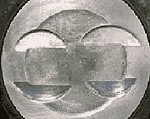|
Project Muscrate
Part 3: Life
goes on
by Jay Roeder
5/7/04
 ello
again and welcome back! First off, I would like
to thank DRO editor Jeff Burk for his patience
and understanding in waiting for my article.
My father passed away on April 2 from complications
of heart bypass surgery, so I have had other
issues to deal with. While I'm at it, let me
take this opportunity to ask each of you, when
was the last time you had a physical? My dad
waited too long, and now my family is without
him. It is a horrible pain, and times such as
these can really be a wake-up call. I am going
to get a physical. Thank you for listening. ello
again and welcome back! First off, I would like
to thank DRO editor Jeff Burk for his patience
and understanding in waiting for my article.
My father passed away on April 2 from complications
of heart bypass surgery, so I have had other
issues to deal with. While I'm at it, let me
take this opportunity to ask each of you, when
was the last time you had a physical? My dad
waited too long, and now my family is without
him. It is a horrible pain, and times such as
these can really be a wake-up call. I am going
to get a physical. Thank you for listening.
.gif)
Here you see the
89 302 HO 2 bolt block being used for the
302/320 hp "crate motor ". Nothing fancy
about this one. |
Now, on to a better topic, racing! In the last
installment I explained some of the rules and
specifications involved in the preparation of
the cylinder heads for "Muscrate". One thing
I forgot to mention was that there is also a
spec. for the minimum combustion chamber volume
on any Stock Eliminator cylinder head. Every
different head allowed for Stocker duty has
its own specs. as per IHRA/ NHRA blueprint sheets.
My old combination, 89 302 HO, used an E7TE-PA
casting number head and had a 60.6 cc minimum
chamber volume. In most instances, there is
NO room for error; 60.5 cc's would be illegal.
Obviously, most people will mill their respective
heads down to the smallest volume they believe
will pass tech. The smaller you go the more
compression you have. In Stock every little
bit adds up. Muscrates heads however, are a
bit different. The heads for Muscrate are a
Ford Performance X302 casting and have a minimum
chamber spec. of 64 cc's, +/- 2 cc's. I have
never seen a + or - before associated with chamber
volume; must be a "crate motor" thing. Anyway,
my heads cc at about 65 cc's so I am just going
to leave them alone for now.

Here we see the old pistons from the 302
HO combo. They were made by CP PISTONS and
are part # F5CP. The new pistons will also
be made by CP and will look pretty similar
but not have a dish. |
Next, the short-block. In the photos I show
you a picture of my old 302 HO pistons, made
by CP Pistons. They were required to be a dish
piston with four valve relief's and have a total
negative volume of 4.6 cc's. The new pistons
that I am expecting shortly, also from CP Pistons,
are listed as flat tops with four valve relief's
and a negative volume of 3.4 cc's. Also, the
combined piston and pin weight must be a minimum
of 709 grams each. I will post pictures of the
new slugs as soon as I can. CP Pistons makes
some really nice pistons. The accuracy of dimensions
and attention to detail is second to none.
Also, I have a couple of pictures of the block
I'm using. It is a standard duty lightweight
casting that comes in everything from Mustangs
to pickup trucks. It is also the same block
I have been running the last two seasons and
has not been apart since I built it in 2002.
It is UGLY. With approximately 250 plus runs
under its belt, it needs a fresh cylinder wall
finish. I am actually quite surprised it ran
as good as it did last fall after looking at
#3 cylinder especially. Oh well, thatĒs partly
due to the crappy soft cast iron the factory
used when they cast it. Trust me, there is a
BIG difference in the quality of iron used in
old (mid å70s back) blocks and the new "stuff".
In order to even have a chance at minimizing
cylinder wall distortion in these blocks, I
have the water jackets filled to the bottom
of the water pump holes with Hard Blok block
filler. It actually helps quite a bit.
.jpg) |
This UGLY
picture is of cyl. #3 after teardown. The
marks are mostly from moisture accumulating
in the cylinder over the last two seasons
of use. In Iowa we get to race in some VERY
humid conditions at times and just letting
the engine set for a week with an exhaust
valve open can let in enough moisture to
do this. This will clean up with about .002"
of honing. Not COOL! |
 |
|